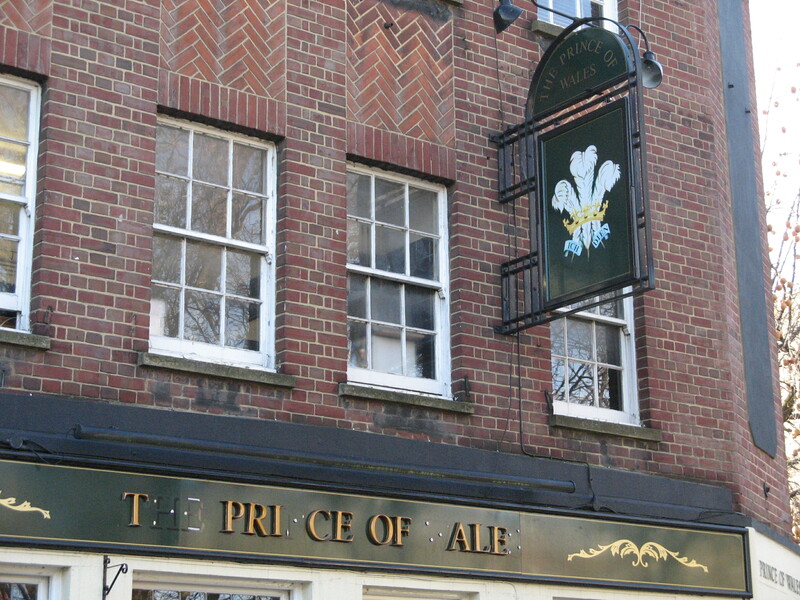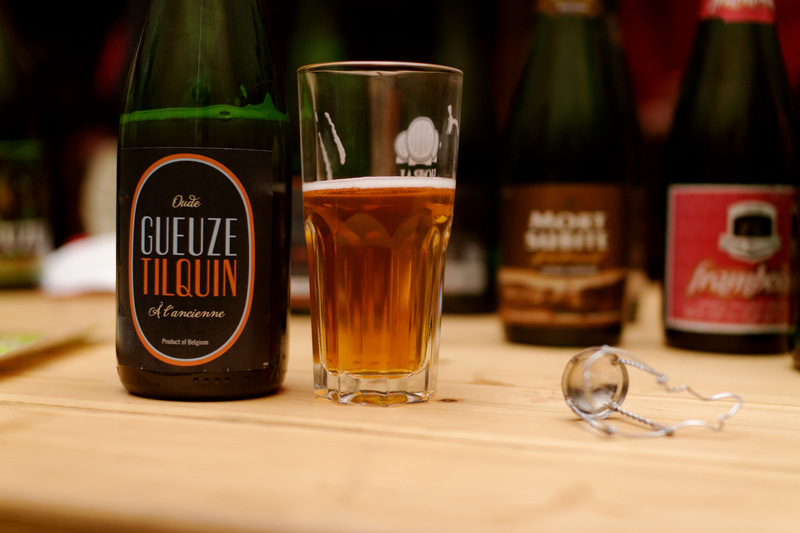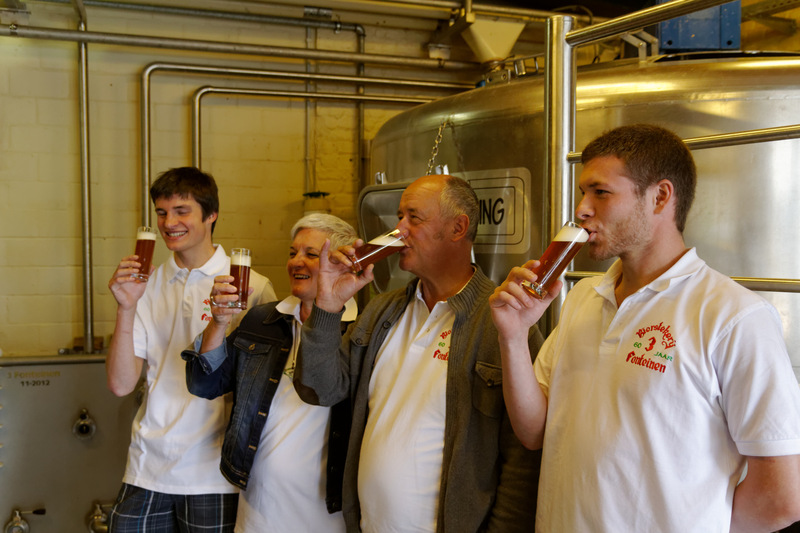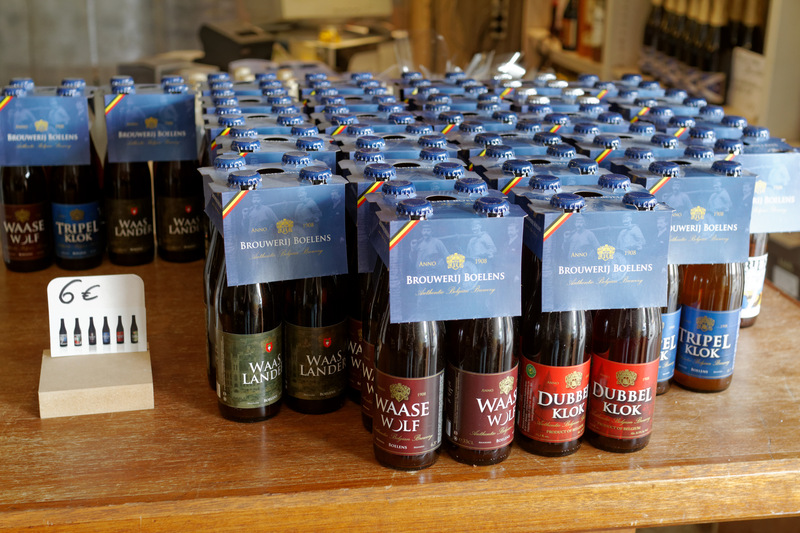The price of ale

The pub formerly known as "The Prince of Wales" |
One thing that struck me very strongly when I was on the Toer de Geuze in 2012 was that the pricing for beer was totally wrong, and that major changes would have to be on the way. Those changes do seem to be coming, but much more slowly than I would have expected. As we'll get to, there are reasons for that.
Pricing is a subject for which there actually exists a substantial body of economic theory. And not just theory, because these concepts are put to the test every day by corporations all over the world. So I think it's fair to say that pricing is something that today is fairly well understood, if not perfectly. There are some lessons here for the pricing of beer.
If you look at the theory on the subject the first thing to note is that in fact, the whole concept of one price for one product is a bit odd. Different people have different thresholds for what price they'll accept for the same thing. This means that from the seller's point of view you really want to charge as much as each individual customer is willing to pay for the product, but no more, because then you don't make the sale. Setting a single price for the product effectively loses you a lot of money, because many of your customers would have been willing to pay more.
There are a number of ways around this. Airlines solve it by letting you pay twice as much for the privilege of boarding a little earlier and getting a free meal. This way the airline extracts a higher price from people willing to pay more for what is essentially the same product. Supermarkets solve it by tripling the prices of a set of random products each week, then changing which ones next week. People who care about price choose their products carefully, and if the ruccola is triple the price this week they'll buy iceberg lettuce instead. People who don't care about price pay what it says on the label, and never notice because the total bill isn't that much higher.

Better lay in some stock of this now |
Interestingly, very few of these options are open to people who want to sell beer, such as bars or shops. One option that is open, however, is the ability to charge more for one beer than for another. If you look at the craft beer market today, you can't help but notice that some beers are really hard to find, and sought after by huge numbers of people. When you do find them, they surprisingly cost about the same as beers that nobody really cares that much about. Economic theory says this is a very strange state of affairs.
The perfect example of this is Belgian lambic beers. The demand for these beers has been skyrocketing for years, and will go on doing so. The quality of the beers is extreme, compared to just about anything you care to name. There's hardly anything else comparable that you could substitute for these beers if you want a lambic. The cost of production is much, much higher than for other beers. And supply cannot increase very fast, given how these beers are produced. There's already a shortage of the necessary wooden barrels, for example.
I therefore concluded that the prices of lambics (and other especially highly sought-after beers) would necessarily have to increase. And to some degree they have, but not very much. Drie Fonteinen is one brewery that has increased the prices a bit, after the 2009 disaster. Part of the reason was that Lydie Debelder, Armand's wife, had taken over the business side of the brewery. So when we visited Drie Fonteinen I tried asking Lydie a bit about pricing.
She described how some customers would flatter Armand, in hopes of being allowed to buy more beer, which would anger other customers who would then get less. The obvious conclusion is that the prices they charged were way too low. Obviously, they would have sold the same amount of beer even if they increased prices quite a lot. So basically, by letting customers buy it more cheaply they were giving these customers the price difference for free. Being human, some of the customers would then turn around and charge more for the beer, pocketing the "gift" from Drie Fonteinen.

Lydie and the others at 3 Fonteinen |
As Lydie put it, before they increased the prices, "the only people who didn't make money from our beers was us." And I can honestly see no reason why Drie Fonteinen should run a business this way. Having lived frugally for decades to keep this fantastic style of beer alive against all odds, why should they give away to other people the profit from lambic becoming fashionable again? And if they did, wouldn't that mean that the business would remain very vulnerable to disasters like the one that hit Drie Fonteinen in 2009?
Of course, people do get upset when prices increase. They feel they are being ripped off, and that the producers are exploiting the situation. However, what's really happening is that price is the means by which our society regulates access to limited goods, be they luxury cars or milk. Instead of the Soviet approach (long queues, a lack of everything, and a big black market), we let the market set the prices. That means that some people will have limited access to the beers they want. However, it also means that if people want a beer enough they can prioritize their spending, join forces with other enthusiasts, or even save up, and eventually afford it.
To put it another way, nobody complains that they can't buy a huge villa with a great view of the Thames in London. Why? Because we all know that if you tried offering the price that you (or I) could afford, the owner could just wait half an hour for someone else to offer them ten times that for the same property. By accepting our offer they'd be cheating themselves out of quite a lot of money. What's the difference with beer? Or airplane tickets? Or toothbrushes? In economic terms, nothing.

Unhyped quality beer, likely to remain affordable |
However, another finding that economists have made is that in many cases, the backlash of consumers against what really in economic terms are rational pricing policies can be detrimental to business. Thus businesses may be forced to adopt less rational policies. Even so, economic forces are strong, and have a tendency to get their own way, no matter the obstacles. To take one example, while the monks of Westvleteren deliberately charge low prices and erect all sorts of obstacles to deal with the resulting overflow of demand, we are all used to paying quite a lot more for their beers. Much to the frustration of the monks, but that's how the market works, and it's really not much use getting upset over something so eminently predictable.
In short, eventually things will change, and we will get used to a pricing system for beer that's much closer to how the wine world works today. A side-effect is very likely to be an increased status for beer, probably gradually approaching the status of wine, because for many people money really does talk. Quite likely that's going to attract some new types of consumers for quality beer, and very likely many of them will be reviled by today's beer enthusiasts.
Another side-effect is obviously going to be that being a beer entusiast is going to become harder if you want to try the most sought-after products unless you have deep pockets. Very likely there will always be excellent less-appreciated products that normal entusiasts can afford, and that if you absolutely must try one of the big white whales there will be ways of achieving that, too.
Meanwhile, some of those people who have sacrificed a lot to keep totally unique beers alive stand a chance of actually being rewarded for their efforts. And the businesses of those who produce great beer will be a lot more secure than they are today, which will do a lot to secure these unique beers for posterity. I fail to see the problem.

The price for vintage beer will skyrocket, obviously |
Similar posts
Thoughts on Big Data
Big Data has really caught on as a buzz word, even well outside the technology world, with journalists writing columns on its consequences for privacy, research, and so on
Read | 2013-09-11 15:06
Japanese beer
Japan is not, of course, a country with any great beer tradition to speak of, and so one may be forgiven for thinking that it's all a dreary swamp of bland pale industrial lager
Read | 2007-06-04 20:52
Comments
Curmudgeon - 2014-06-16 13:28:14
"very few of these options are open to people who want to sell beer, such as bars or shops"
While tangential to your core point, there are plenty of ways of segmenting customers in different distribution channels. It's very common to find a beer on sale in Wetherspoon's for £1 a pint less than the same beer (or a very similar one) in a nearby pub catering for a different demographic.
Morten - 2014-06-16 14:15:26
So obviously true. Its ridiculous when Cantillon charge €7 for their products at the brewery, and you get propell coming in literally bytting cases, meantime for resale in the home country. 5 years from now €20 for a Lambic is going to be considered a steal. Better the Armands ang Jean van Roys economically benefiting from the quality of their product than some eBay savy beer collector.
Morten
Lars Marius - 2014-06-16 15:27:40
@Curmudgeon: Yes, prices differing by location is one option that is open. Actually, that whole sentence you quoted is tangential to my main point, and should have been excised.
@Morten: I think the story you told me this morning is a really good illustration. You visit de Cam and they're totally sold out of beer at the brewery. You go across the road, and the cafe there is sold out, too. And yet the beer is cheap, and the guy making it still works a day job. Like you, I really don't see how that can be a healthy state of affairs.